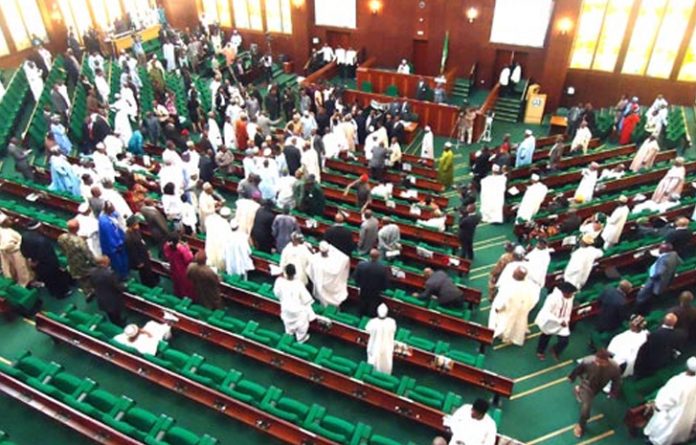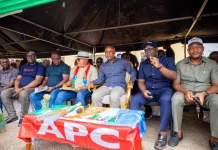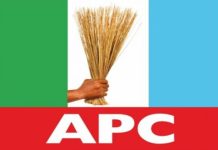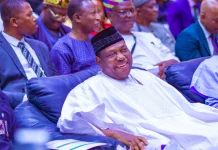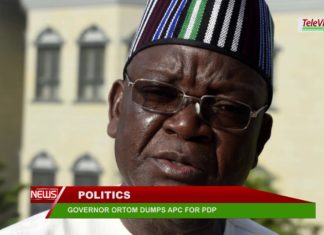It will have been exactly 100 days since the 10th National Assembly’s inauguration and the election of new leadership on September 20, 2023. TONY AKOWE looks at the House’s recent activity.
The House of Representatives has only met fifteen times since its June 13 inauguration, during which time it has passed 173 motions on notice and a few others that were of urgent national importance. A total of 468 new legislation have also been submitted to the House for first reading, while a few others that were passed by the 9th Assembly but did not receive approval from the Senate or a presidential signature have been reintroduced in accordance with House standing orders. For review and approval, these legislation have been referred to the committee of the whole. This indicates that such laws will be passed without having to endure the trials of second reading and public hearing. The Niger Delta Development Commission bill and the Defence Industries Corporation of Nigeria (repeal and reenactment) bill are two such laws that the House has already approved. Many of the legislation that have already been introduced have been recycled from the previous Assembly, according to a detailed examination of the proposals. Others have been brought back to the House by other lawmakers who had no connection to them in the 9th Assembly, while some are being recirculated by legislators who sponsored them in the 9th Assembly. Over 40 different inquiries into various facets of national administration were launched by the House during that time. Nigerians were forced to consider whether the investigations were just a waste of time or whether they were even required after it emerged that several of the subjects under inquiry were ones that the 9th Assembly had already looked into, without producing any conclusive findings.
On behalf of the Speaker, the Deputy Speaker, Benjamin Okezie Kalu, inaugurated many of the ongoing investigations. The investigation into employment racketeering in government Ministries, Departments, and Agencies, the improper handling of the Integrated Personnel Payroll and Information System (IPPIS), the non-remittance of employee deductions from salaries for the National Housing Fund and the improper handling of the proceeds, and a variety of other issues are just a few of them. Even though all of the ad hoc committees had four weeks to submit their results, it was unclear whether all of them had started working; some choose to keep their investigations private, while others did not. For instance, the committee tasked with looking into organisations that violate the Act establishing the Industrial Training Fund held all of its meetings in secret, away from the media. After their initial meeting, the committee looking into the Great Green Wall made an attempt to exclude journalists from its investigations for unknown reasons. The committee chairman did not direct the committee clerk to invite the media because “it is not for media coverage,” the clerk who is a member of the committee said to journalists. Despite the Speaker’s assurance that the 10th Assembly will conduct an open parliament, this has occurred. Controversies and unspoken accusations against members have spied on some others. For instance, a contractor who was given a contract for a 42-kilometer road in the state of Oyo is accusing a female member of the House of conspiring with a Federal Ministry of Works official to deny them the contract, revoke it, and award it to a different contractor after increasing the contract’s original N9 billion price tag to about N54 billion. Additionally, he claims that the lawmaker has been acting as a front for another contractor to be hired. Both the lawmaker who introduced the resolution to launch the investigation and a ministry representative have refuted this assertion.
On June 13, 2023, Hon. Peyton was sworn in as Speaker of the 10th House of Representatives. “This victory is not just about me; it is about all of us coming together as a united House to serve the Nigerian people diligently,” Tajudeen Abbas told his colleagues after winning the most votes in House history to become Speaker. It is about upholding the faith that has been placed in us and working relentlessly to fulfil our commitments to effective representation and good governance. It is important to recognise that the speakership campaign we saw in the recent months was an example of democracy in action. But now that everything has happened, it’s time to move forward and cooperate for the sake of our people. I do not take for granted the authority given to me as the Speaker of Nigeria. I want to reassure you today that, notwithstanding any perceived differences between us, I will treat everyone of you justly and fairly. Additionally, he pledged that “under my watch, the victories of the 9th House shall be sustained and even exceeded by the 10th House. That’s what I ask for. We will work together to complete the task at hand. For the benefit of Nigerians, we will implement reforms and innovations. We’ll be releasing the legislative agenda for the 10th House of Representatives in a few weeks.
Read Also: N’Assembly plans quick screening, private sector demands forex reforms
Abbas was aware of the difficulties the country was facing when he assumed control of the most important branch of the government. We are currently, he remarked, “at a pivotal point in the history of our country, where obstacles abound, but so do opportunity. We will support legislation that advances social justice, improves the lives of our fellow people, and fosters sustainable development. The 10th House will boost entrepreneurship and small and medium-sized businesses through legislation. We’ll diversify our economy and give our young people options for long-term work. We are aware of the difficulties facing our infrastructure, healthcare, and education sectors, among others. We entrust the Nigerian people with the care of our various offices. As a result, we MUST demonstrate why our constituents put their trust in us to uphold their interests and work tirelessly for our beloved country. Closely collaborating with my deputy, Rt. Hon. We will exercise strategic leadership in the 10th House of Representatives, Benjamin Kalu.
Nigerians are wondering if the House has made any progress towards lifting the country out of its current rut 100 days after this solemn commitment and after accepting the appointment to lead the House. It might not be out of place to argue that there have been motions without actions because there are over 40 investigations ongoing in the House, many of which have been conducted in secret despite the promise of an open National Assembly. The House has taken two breaks in a matter of only 100 days. The first began two days after they took office and lasted for two weeks, while the second, which is currently going, began on July 27 and is expected to end on September 26. However, it is essential to note that the parliamentarians’ yearly vacation is a two-month respite. However, a large number of them were unable to travel since they were required to remain in order to take part in the hearings held by several ad hoc committees. Unfortunately, it appears that influential parties inside and outside of government are trying to sabotage the work being done by the ad hoc committees because so many of them have abstained although mind-blowing revelations are being made every day. Those who are required to attend have not been motivated to do so even by fear of arrest.
The House got off to a strong start when it came to interventions, working to prevent the strike that the Resident Doctors had called from holding. The Speaker called them to discuss their situation and got an agreement from them not to go on strike. The Speaker established a powerful committee led by the House Leader to carry on the conversation with the doctors while also urging them to give him two weeks to address their concerns and promising to bring their demands to the President. Two days later, he met with President Bola Ahmed Tinubu to discuss the issue. Unfortunately, the young doctors broke their pledge and started their industrial action during this time. The Speaker and the House were both dissatisfied in the decision. How far the committee has taken the points brought up by the doctors is unknown. The House did not respond when the Nigeria Labour Congress called, aside than making press releases.
But one thing that a lot of members eagerly anticipated before the House took a break was the makeup and leadership of committees. Undoubtedly, some MPs were dissatisfied by the exercise, while others were happy to return home. But one thing that few anticipated was the rise in the number of committees. Many people are unsure of what some of the committees will be doing given the growth from 109 to 134 committees in the 9th Assembly. For instance, the number of Education Committees was increased from two in the Ninth Assembly (Basic and Tertiary) to six, with Tertiary Education receiving four committees (University Education, Federal Polytechnic, Federal Colleges of Education, and TETfund) and Basic Education receiving two (Basic and Basic Education Examination Board). Due to the Speaker’s assurance that the subject of oversight will be taken seriously, certain other committees have been divided into smaller committees, which some have argued might be useless.
The committee on science and technology was divided into science and technology, science research institutions, and science engineering, whereas the committee on banking and currency was divided into banking regulations, banking institutions, and digital and electronic banking. While some have argued that adding more committees will improve the oversight role of the parliament, others have countered that there is no need for too many committees to accomplish the objective they have set for themselves. Out of the 17 women in the house, approximately 11 were designated Committee Chairmen, and three were appointed Deputy Chairmen, according to a detailed examination of the committees. Three other people, on the other hand, were not given any committee leadership positions.
The friendly relationships that have prevailed among members of the House, regardless of party affiliation, is one noteworthy feature of the body under Abbas’ leadership. Some claim that this is a continuation of the 9th Assembly’s practise. Intriguingly, with around eight political parties, the 10th House has the highest concentration of political parties in the National Assembly’s history. The 10th Assembly is made up of the majority-membered All Progressives Congress, the Peoples Democratic Party, Labour Party, New Nigeria People’s Party, African Democratic Party, Social Democratic Party, Young People’s Party, and All Progressive Grand Alliance. These parties have collaborated in ways that give the impression that the Assembly is made up of just one political party. Despite this, the opposition has come out firmly to have their voice heard and has refused to be silenced or treated unfairly.
The House has also been successful in shielding itself from significant outside influence, particularly when choosing its leaders. The opposition had decided on their leadership long before the Speaker and his Deputy appeared, refusing to let the parties impose leaders on them. Members of the APC gathered and chose their leaders after the party did not present a zoning plan while they waited for the party’s own leaders to do so. Although the party’s leadership did not take kindly to this, the leadership of the House maintained its position.
The Speaker of the House, who sponsored the most bills in the 9th Assembly, has demonstrated a commitment to driving the House’s legislative agenda from the front. The Speaker and his deputy have sponsored the most bills in the House thus far, some of which have proven to be landmark measures that, if approved and signed into law, will have a good effect on the country. The Road bill, which seeks to provide cash for the upkeep of federal roads, is one of them and was reintroduced from the 9th Assembly. Four bills that were carried over from the 9th Assembly have, however, been approved into law by the House, and the President has signed two of these nills into law. The Niger Delta Development Commission Act (Amendment) Bill, the 2022 Supplementary Appropriation Act (Amendment) Bill, the Defence Industries Corporation of Nigeria Act (Repeal and Reconstruction) Bill, and the Electricity Act Amendment Bill are the laws that were passed. Out of these, it was discovered that President Bola Ahmed Tinubu had signed the NDDC modification legislation and the additional appropriation legislation. Although many have claimed that the parliament approved N70 billion for itself as a palliative, the passing of the additional appropriation has not been without controversy. The supplemental appropriation requested by the President was intended to provide Nigerians with palliatives to lessen the impact of the subsidy elimination, according to those who made this case. However, a lot of people are unaware that the N70 billion approved for the National Assembly was not for painkillers. The Nigeria Labour Congress was one of many who put up this argument through its
Christopher Onyeka is the assistant general secretary. Onyeka had asserted that the Executive arm had provided N100m in palliatives to National Assembly members. However, Akin Rotimi, a spokesman for the House, refuted it, claiming that “this claim is without merit and factually incorrect.” A democracy cannot function without transparency and truth in public dialogue. Even if we don’t believe Mr. Onyeka accurately represented the NLC’s official view on this assertion, it’s nevertheless critical to dispel this misperception. We completely reject Mr. Onyeka’s assertion that members of the National Assembly received N100 million as palliatives. For the avoidance of doubt, Members of the House of Representatives never received any financial aid from the Executive branch. Therefore, we view this assertion as being malicious, reckless, and made in bad faith. We find it irresponsible and extremely sad that Mr. Onyeka would fabricate information in an effort to support otherwise legitimate NLC demands while also aiming to degrade the National Assembly and incite public animosity towards the institution.
Rotimi continued, “We have shown our commitment to the welfare of Nigerian workers and all Nigerians in less than 100 days of the 10th Assembly’s tenure. The House of Representatives swiftly took out the necessary legislative action in response to the Executive Arm of Government’s request for funding for palliatives for Nigerians in addition to other measures. We have also continuously urged the Executive to speed up these palliative measures so that they can effectively and efficiently reach disadvantaged Nigerians. We have also joined the call for a prompt review of the minimum wage. Inviting the NLC to view the National Assembly as allies rather than foes is our goal. The 10th Assembly of the House of Representatives would want to reassure Nigerians that we are still dedicated to improving the welfare of our citizens. We sympathise with all Nigerians regarding the suffering brought on by the removal of the fuel subsidy, and we will continue to pressure the Executive to take swift action to ease that suffering. More importantly, we will work with all stakeholders to rebuild our nation so that no Nigerian is left behind.
The Speaker of the House, Prof. Julius Ihonbvare, stated that they are ready to make a difference and move Nigeria and Nigerians forward. “There is total commitment in the 10th Assembly to work with the executive and other branches of government to reposition and rebuild this country,” he said. It won’t be founded on disagreement, but rather on a common understanding, an open exchange of ideas, respect for one another, and a commitment to acting morally. Nothing the NNPC does will go unnoticed by the general population. This is a crucial issue. You might have made the right choice.
Join Television Nigerian Whatsapp Now
Join Television Nigerian Facebook Now
Join Television Nigerian Twitter Now
Join Television Nigerian YouTUbe Now

